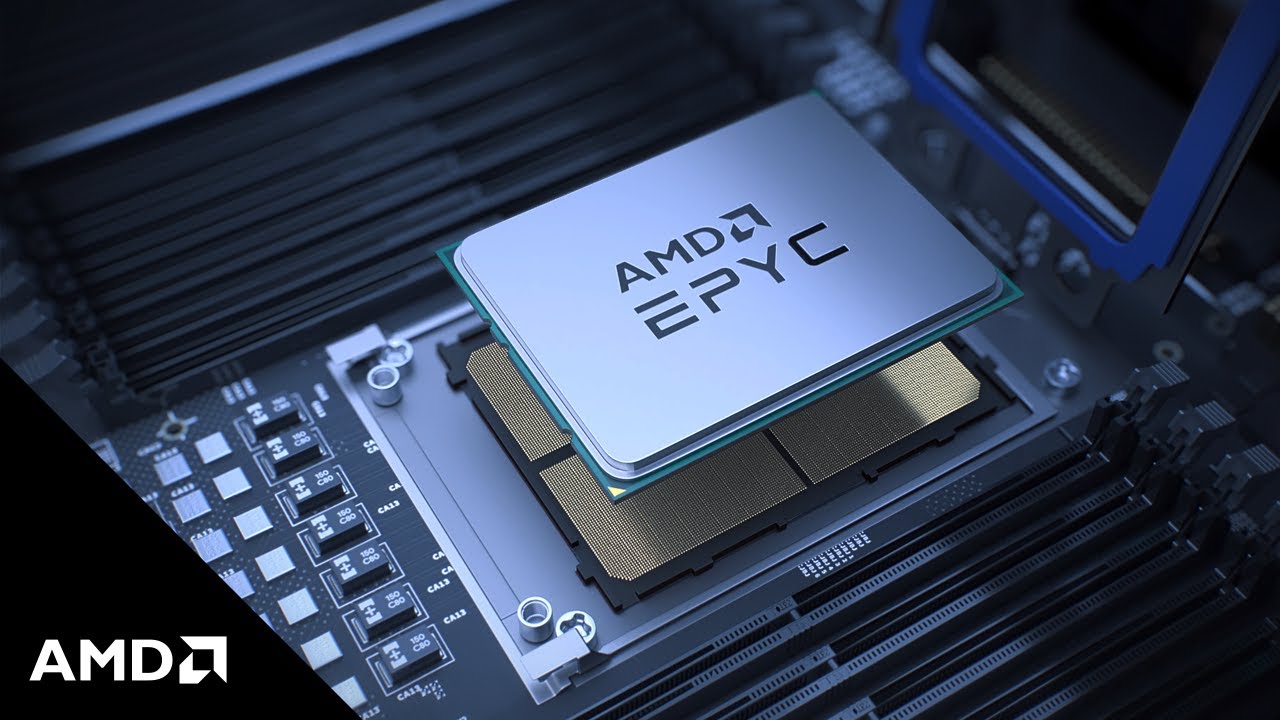AMD's 128-core EPYC CPU becomes the multi-threaded performance champ in CPU-Z — EPYC 9755 Turin chip scores over 108,000 points
Zen 5-based EPYC has a massive advantage over Zen 4-based EPYC CPUs.

AMD's unreleased EPYC 9755 (Turin) processor with 128 Zen 5 cores has set a new benchmark record. According to hardware leaker YuuKi_AnS, the EPYC 9755 scored 108,093 points in the CPU-Z multi-thread test, making it the fastest multi-threaded processor on the CPU-Z benchmark on the planet.
The AMD EPYC 9755 features 128 Zen 5 cores and can process 256 threads simultaneously. The CPU operates at clock speeds between 2.7 GHz and 4.1 GHz and has a thermal design power of 500W. The CPU scores 108,093 points in the CPU-Z multi-thread benchmark, 57% higher than AMD's EPYC Bergamo, which had 128 compact Zen 4c cores and scored 68,803 points.
The new processor is also a whopping 73% faster than AMD's Ryzen Threadripper Pro 7995WX processor with 96 full-fat Zen 4 cores and a massive 115% faster than AMD's EPYC 9654 CPU with 96 Zen 4 cores.
| Header Cell - Column 0 | Configuration | CPU-Z Multi-Thread Score |
|---|---|---|
| EPYC 9755 | Zen 5 | 128C/256T | 108,093 |
| EPYC 9754 | Zen 4c | 128C/256T | 68,803 |
| Ryzen Threadripper Pro 7955WX | Zen 4 | 96C/192T | 62,620 |
| EPYC 9654 | Zen 4 | 96C/192T | 50,323 |
As for single-thread performance, the EPYC 9755 scores 653.7 points, which is not bad but is frankly nothing to write home about as this aligns with AMD's Ryzen 7 7800X3D scores. The highest CPU-Z single-thread score ever achieved so far is 957 points, and the record belongs to Intel's Core i9-14900KS.
Notably, neither the EPYC 9755 processor with 128 Zen-5 cores nor the EPYC 9654 CPU with 96 Zen 4 cores are range-topping processors, so the highest-end EPYC 9000X processor yet has to show its capabilities. Also, AMD's EPYC 9005 CPU with 192 Zen 5c cores still has to demonstrate its full potential, and it looks like this one will be extremely powerful, as improvements brought by the Zen 5 microarchitecture are substantial.
Speaking of substantial performance advantages of AMD's Zen 5, we cannot omit the single-thread performance of AMD's Ryzen 9000-series processors with 16 cores. Based on leaked CPU-Z benchmark results we have seen so far, the Ryzen 9 9950X is about 15% faster in single-thread workloads. It is about 9% faster in multi-thread workloads than the Ryzen 9 7950X, which is generally in line with performance advantage estimates demonstrated by AMD.
Get Tom's Hardware's best news and in-depth reviews, straight to your inbox.

Anton Shilov is a contributing writer at Tom’s Hardware. Over the past couple of decades, he has covered everything from CPUs and GPUs to supercomputers and from modern process technologies and latest fab tools to high-tech industry trends.
-
CerianK Table lists 7955WX instead of 7995WX:Reply
Ryzen Threadripper Pro 7955WXZen 4 | 96C/192T62,620 -
FunSurfer It will be interesting to see the gaming performance of this CPU, to understand how much the fps gain for 512MB of L3 cache will be compared to 96MB, as single-thread performance is close to the Ryzen 7 7800X3D.Reply -
helper800 Reply
All of that cache is split up for every core though, no? The thing about the extra cache for the X3D chips is that most of it is available to every core (1 chiplet X3Ds) much more readily then when its split up like in these massive CPUs.FunSurfer said:It will be interesting to see the gaming performance of this CPU, to understand how much the fps gain for 512MB of L3 cache will be compared to 96MB, as single-thread performance is close to the Ryzen 7 7800X3D. -
phitinh81 Replyhelper800 said:All of that cache is split up for every core though, no? The thing about the extra cache for the X3D chips is that most of it is available to every core (1 chiplet X3Ds) much more readily then when its split up like in these massive CPUs.
V Cache stacks L3 on top of CPU die, all of it so direct access. On EPYC, no matter how big L3 is, its not close enough to the cores to make any difference in gaming.FunSurfer said:It will be interesting to see the gaming performance of this CPU, to understand how much the fps gain for 512MB of L3 cache will be compared to 96MB, as single-thread performance is close to the Ryzen 7 7800X3D.